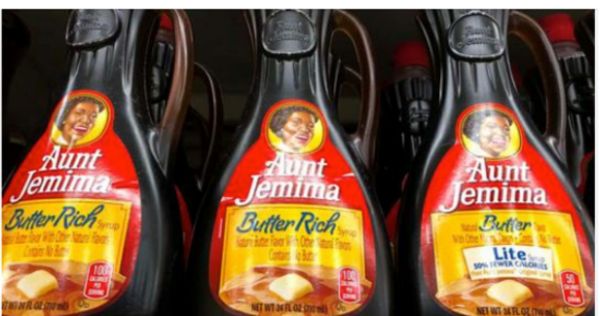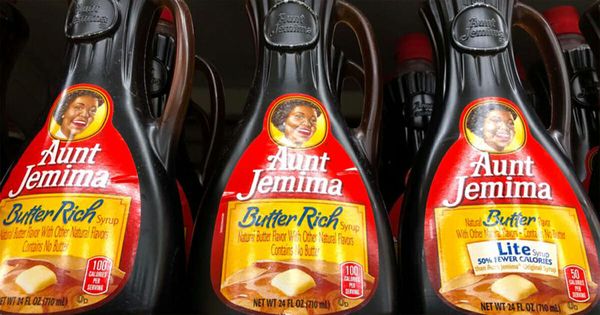
Quaker Oats made headlines in 2020 when they announced the discontinuation of their iconic “Aunt Jemima” brand in support of the Black Lives Matter movement. However, this decision was met with immediate opposition from Larnell Evans Sr., the great-grandson of “Aunt Jemima” herself, who believes that erasing the brand would also erase a part of black history and the struggles endured by his family.
For Evans, this is a matter of justice and preserving his family’s legacy. As a veteran of the Marine Corps, he strongly feels that the company, which once profited from the imagery of slavery, is now attempting to absolve themselves of their past at the expense of his great-grandmother’s history. With deep emotion, he explains, “The racism they talk about, using images from slavery, that comes from the other side — white people. This company profits off images of our slavery. And their answer is to erase my great-grandmother’s history. A black female. … It hurts.”

The “Aunt Jemima” brand, with its depiction of Nancy Green, a woman who was once enslaved, will now be permanently retired according to Quaker Oats. While the company referred to Green as a “storyteller, cook, and missionary worker,” she undeniably played a significant role in the brand’s history. The brand name was first used in 1893 when Green was contracted to serve pancakes at the Chicago World’s Fair. Another woman, Anna Short Harrington, later took on the role of “Aunt Jemima” and served in it for a remarkable 20 years. This revelation particularly impacts Evans since Harrington was his great-grandmother.
Evans passionately shares, “She worked for that Quaker Oats for 20 years. She traveled all the way around the United States and Canada making pancakes as Aunt Jemima for them. This woman served all those people, and it was after slavery. She worked as Aunt Jemima. That was her job. … How do you think I feel as a black man sitting here telling you about my family history they’re trying to erase?”
The act of capitalizing on racial stereotypes is particularly distressing to Evans, who questions the accountability of white corporations. He asks, “How many white people were raised looking at characters like Aunt Jemima at breakfast every morning? How many white corporations made all the profits and didn’t give us a dime? They’re just going to erase history like it didn’t happen? … They’re not going to give us anything? What gives them the right?”
As we reflect on these events, it is clear that this topic has sparked intense dialogue. We invite you to share your thoughts and opinions in the comment section below. In the meantime, if you stand with the Black Lives Matter movement and its important mission, we encourage you to share this article with your friends and family on Facebook. Let us continue to promote equality and justice for all.





